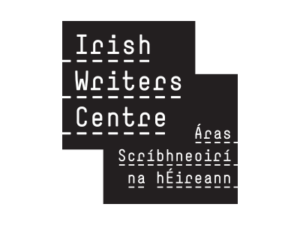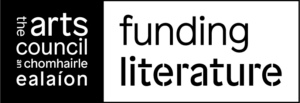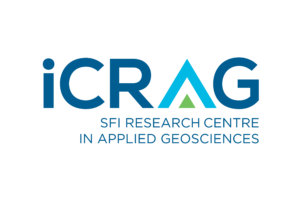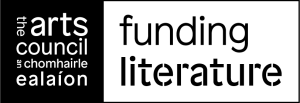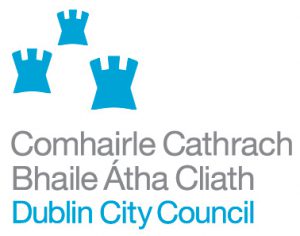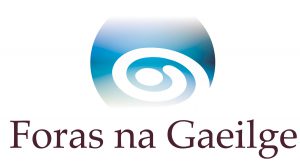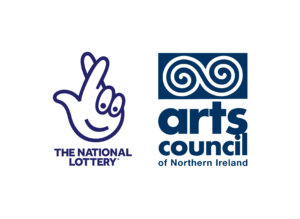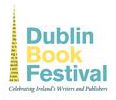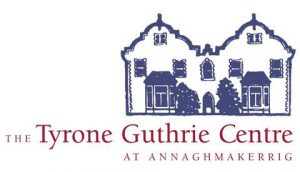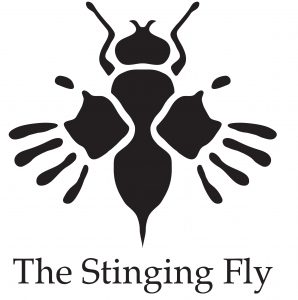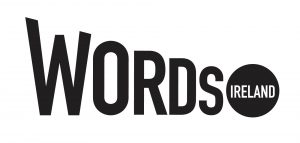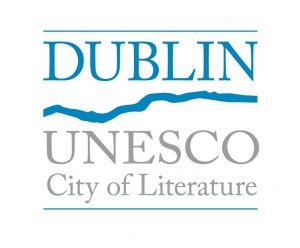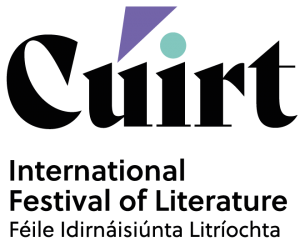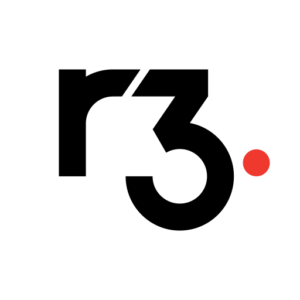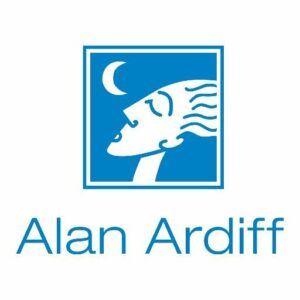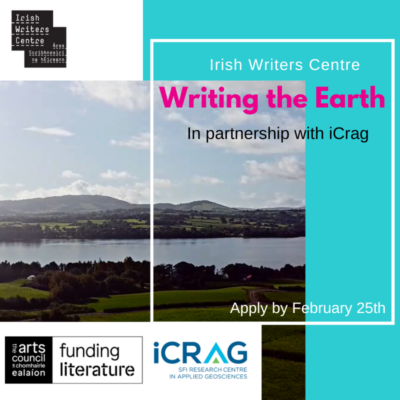
Residencies, Retreats & Opportunities
Writing the Earth
Info
Date:
March 10 – June 30, 2023
Deadline:
February 25, 2023 at 5:00pm
The Irish Writers Centre (IWC) in partnership with iCRAG is delighted to launch a pilot programme for writers working with scientists. This is a fully-funded programme for eight writers interested in climate justice and geosciences.
The IWC is committed to advancing the thinking and practices that support a sustainable environment. The scope of Writing the Earth is such that it speaks directly to stated objectives in the 2022-2026 IWC strategy. Strategy Goal 2 looks to enhance opportunities for people of all communities to engage in creative writing, while Goal 3 seeks to builds on an engaged community of writers. This exciting new strategic partnership with iCRAG (funded by Science Foundation Ireland) responds to these strategy goals splendidly and also to address Goal 1 which aims to advance the craft and career of professional writers, whom we welcome to apply.
What is Writing the Earth?
Writing the Earth is a new programme that builds on the work of the hugely popular IWC Climate Writing Group in taking writing about our planet to the next stage.
A hybrid programme which brings writers and scientists together in person and online to research and write about climate and geoscience in various genres or forms. In a collaborative process of talks and workshops, the scientists will inform and guide the writers through scientific processes in plain English This will enable them to form their creative ideas around an aspect of climate change or earth science that they will eventually create into fiction or creative non-fiction.
These talks may focus on, for example:
- The natural world – how we measure and monitor the planet, but also exploring renovation – how nature responds to positive change or restoration e.g. monitoring of bogs in Ireland, and also the change that climate and higher CO2 levels will have on plants.
- Rising water – the impact this will have on Ireland and measures to mitigate or ameliorate conditions.
- Renewables – the science behind, for example, geothermal energy or offshore wind energy or other new technologies with the potential to be game– changers when it comes to new sources of energy, harnessing the earth’s resources sustainably and without causing harm to the environment. Also perhaps, to explore the issues around natural resource development, for example the mining that is needed to provide the metals needed in green technologies.
- Earth science in society – the decisions that society must take to live sustainably on our planet and within its finite resources.
Through talks online and onsite, and giving the writers the opportunity to handle various materials, the scientists will impart their experience on each subject area, trying to tap into the science, policies and realities of bringing positive climate action and sustainably managing our planet into fruition. In other words, the scientists will be stretched to think beyond their daily practice and put themselves into the shoes of the writer, who must find a way to unpack this information creatively.
Why are we doing it?
In the words of Mary Robinson, who says the single most important act that we can all do as individuals is to make climate change personal to us, in our own lives. What a scientist does is to research and investigate a topic methodically, and to reach conclusions based on a series of observations which are often complex to explain to a general audience. What a writer often does is to make sense of our world, often the indecipherable parts of our existence, through language and imagery. Whether scientist, or writer, both ultimately use the written word to describe the world.
This project seeks to bring those two worlds together by bridging the gap between science and literature in the service of bringing climate change to the forefront of our thinking, creating the words and ideas that will bring about positive climate actions. In the same way as many of the science fictional elements of Star Trek dreamt up by Gene Roddenberry in the 1960s are now virtually a reality, It will be the writers of today who will imagine the ideas which will make the planet sustainable and viable for the children of tomorrow.
Who is it for?
We will select up to eight emerging or early career professional writers, writing in prose, namely, fiction or creative non-fiction. Applications are welcome from writers who have had some measure of success with their writing with journals or online publications but who may have not been published with a recognised publisher, or who may have had one or two books published. Candidates will sign up to participating in all aspects of the programme as part of the application process. The writer must be able to demonstrate a track record as a writer – our Professional Membership criteria serves as a guide.
While this is an open call, writers from our Climate Writing Group (CWG) who are resident on the island are encouraged to apply. This project is an ideal development for CWG writers who can commit the time. Equally, IWC Professional members wishing to amplify their writing skills (possibly in another genre with climate justice at its core) are also welcome to apply.
Please note that all writers must be over the age of 18, resident on the island of Ireland and confirm their availability for all sessions, in person or online. The IWC welcomes applications from writers who come from an underrepresented group which includes Black, POC (person of colour), Traveller, Roma, LGBT+, disabled and working class writers, and those who consider themselves to be within the groups described in the EDI statement on the IWC’s website. Irish Language writers are also welcomed, and the mentoring session can be accommodated as Gaeilge, but please note that all sessions will take place in English.
Format and Outcome of Writing the Earth
There is a degree of the unknown in the planning of Writing the Earth. The participating writers and scientists will be encouraged to contribute to how the programme might unfold. Sessions 2 and 3 in particular, will evolve based on the interests and needs expressed by the writers, which will be identified in the first session.
Selected participants will need to be available for the named sessions below and also need to confirm that they have a level of flexibility and willingness to make themselves available as the full programme evolves.
In addition to the talks, there are two other types of supports offered:
- Access for the writer to a selected scientist via email or phone (by arrangement) on a regular basis throughout the life of the programme.
- A 90-minute mentoring session with an experienced writer-mentor to guide the participant through the process of writing a piece of writing to performance standards. This session will take place between Sessions 1 and 3 by appointment and will likely be online.
- The draft pieces will be read by an editor and short written feedback will be offered for editing/re-writing.
The expected outcome of the programme is that all eight writers will have produced a short story, a news article or creative non-fiction piece of approximately 2,000 words which is to a standard that it is ready to be shared with a public audience, or indeed, for publication.
Measuring the Success of the Programme
Given that this is a pilot, it is very important to us to learn about the success of Writing the Earth. For iCRAG, in line with its remit to bring science to a wider audience, evaluation is a key part of the process. For the IWC, the topic is one that aligns with our ethos of sustainability, and the process and supports offered meet strategy objectives in developing writers in their craft.
Therefore, the evaluation will take place at several stages during the process:
Initially, iCRAG will also undertake a pre-evaluation at the opening session as a baseline from which to track the effect the programme has on participants. There is no prior level of familiarity with climate science/earth science needed. Evaluation methods may include the co-creation of a “writers’ dictionary” of terms based on this evaluation, as well as short interviews.
Mid-way through the programme in May, the writers will be asked to fill in a reflections template.
Finally, either before or after the presentation, the writers will be asked to give their feedback in a structured workshop.
Timeline of Programme
The format will be a combination of in-person sessions (half day), and online (2 hrs) – all sessions are planned for mornings. Dates and times to be confirmed but the below is proposed:
Session 1 – Friday March 10, 2023 – Intro session followed by workshop (half day in person in IWC premises, Parnell Square, time tbc)
Session 2 – Friday March 31 2023 – With talks from scientists followed by workshop (online)
Session 3 – Saturday April 22 2023 – With talks from scientists followed by workshop (online)
Session 4 – Saturday May 13 2023 – Editorial session (format tbc)
Final Presentation and evaluation workshop – in the week beginning June 19th (half day in person in UCD iCRAG associated venue, day and time tbc)
How to Apply
Please send the following in one attachment (Word Doc or PDF) Applications are accepted by email only to projects@writerscentre.ie no later than 25 February 2023 at 5pm, ensuring to put Writing the Earth in the subject line. Please include:
- A cover letter which clearly tells us why you’d be an ideal participant for Writing the Earth, ensuring you tell us about the following:
- Your interest in climate justice and earth matters
- A statement of intent on the piece of writing you might like to work on
- Confirm that you are over 18 and a resident on the island of Ireland
- Give details of your eligibility as an underrepresented writer, if applicable.
- An updated Curriculum Vitae (max. two A4 pages).
- A single clearly labelled sample of recent work of relevance to the theme (up to max 500 words). We will accept a wide interpretation of how you might interpret the theme.
- Any other relevant information which might support your application. (max. two A4 pages).
Note: Please compile all relevant documentation into a single Word doc or PDF attachment. (Incorrect collation may result in ineligibility.)
Deadline: February 25th, 2023 at 5pm. No late applications will be considered. Applications will be acknowledged by email on receipt.
Selection Process and Criteria
All applications will be reviewed for eligibility. Applications will then go before a selection committee consisting of members of the Irish Writers Centre, iCRAG and the Writing the Earth writer-facilitator. The panel will select from eligible applications only, so please ensure to read the criteria carefully and to observe the sample word count requested.
The selected participants will be publicly named on the IWC and iCRAG websites in due course.
iCRAG
iCRAG is the Science Foundation Ireland Research Centre in Applied Geosciences hosted by University College Dublin. We are a team of researchers creating solutions for a sustainable society.
We develop innovative science and technologies to better understand the Earth’s past, present, and future and how people are connected to it.
We drive research in areas that are critical to society and the economy, including:
● Sustainable discovery of energy resources and raw materials required for decarbonisation.
● Securing and protecting groundwater and marine resources.
● Protecting society from Earth’s hazards such as flooding and landslides.

